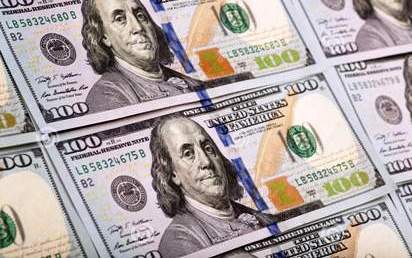U.S. dollar price at record high against Sudanese pound
July 17, 2107 (KHARTOUM) – The U.S. dollar exchange rate on Monday has hit a new all-time high in the black market as the Sudanese pound (SDG) declined to 21.2 per dollar.

The economic expert Mohamed al-Nayer told Sudan Tribune the high increase in the dollar price was caused by the U.S. Administration to delay the full lifting of trade and financial sanctions imposed on Sudan.
Last January, former President Barack Obama issued an executive order easing the 19-year Sudan sanctions on a probationary basis. The sanctions relief was to become permanent on 12 July unless the U.S. Administration acted to stop it.
President Donald Trump, in a new executive order last week, moved that deadline back by three months while keeping the temporary sanctions relief in place, citing the need to take more time to assess the robust process.
Al-Nayer pointed out that the black market traders have increased the dollar price ahead of Washington’s decision on the sanctions, saying the rise should have stopped after the decision but the Central Bank of Sudan (CBoS) failed to provide additional amounts of Forex to meet the demand.
Last week, the director of Foreign Exchange Department at the CBoS Nur al-Din Mohamed Sulieman said they continue to provide Forex at the official rate for purposes of tourism and medical treatment abroad.
Al-Nayer added the dollar exchange rate would stabilise only by increasing production and exports and decreasing imports in order to reduce the trade balance deficit, which amounted to about $5 billion.
“This solution can’t be achieved in the short run but within two to three years,” he said.
He said the short term solution would depend largely on the remittances, criticising the incentive policy applied by the CBoS for not providing real incentives for the Sudanese expatriates whose annual remittances range from $4 to $6 billion.
Last November, the CBoS introduced an incentive policy, increasing the exchange rate in commercial banks by 131%. As a result, the U.S. dollar exchange rate went up in banks to 15.8 SDG from the official rate of 6.5 SDG.
However, this measure didn’t halt the rise of the dollar against the pound in the black market.
The Sudanese pound has lost more than 100% of its value since South Sudan’s secession in 2011, pushing inflation rates to record levels given that the East African nation imports most of its food.
(ST)
